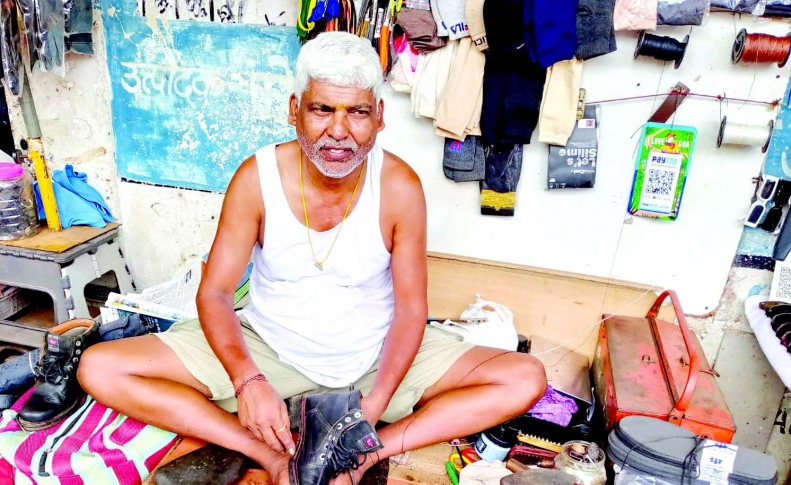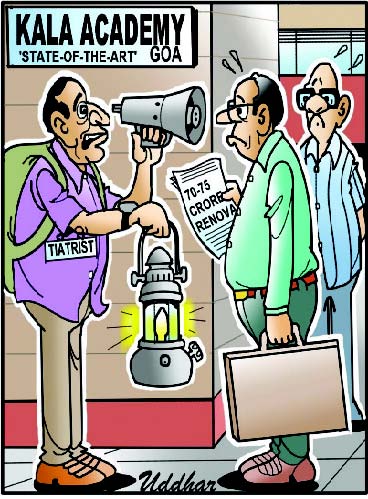
ERWIN FONSECA
MAPUSA: The contribution of a cobbler to society cannot be ignored. Even yesteryear hit Hindi films have given due recognition to cobblers, portraying them as child heroes who initially toil as cobblers but later excel in life in other fields. Sudesh Hasotikar breaks the stereotype often associated with cobblers.
Hailing from a family of cobblers, Sudesh explored other professions but ultimately returned to his roots, establishing himself as the most sought-after cobbler in Mapusa’s market.
Growing up in the bustle of Mapusa, Sudesh witnessed the efforts of his father, a leather merchant. “Despite our humble beginnings, we used to have very high-quality and expensive leather. If people wanted good leather, they would approach my father. In those days, the situation was quite different. The feeling of selfless service was great among people. Everyone believed in helping another without any selfish agenda,” he says wistfully.
“It was in my late twenties that I decided to take up my traditional cobbler business of a cobbler, and today, after 40 years of hard work, I consider myself successful in this profession.” Reflecting on his career, Sudesh says that he, on his personal level, has no regrets but is disappointed with the approach of society and the government towards cobblers. He feels that his community is always neglected and only used for elections with sky-high promises that are never fulfilled.
Sudesh, though a cobbler, wears different hats at different times depending on the situation. For the helpless Goan vendors or the small-scale business community, he is a messiah, who helps protect their rights. “Come rain or sun, we sit in our small corner of Mapusa Market, just five of us now. There is no drinking water, no toilet facilities, nothing for this cobbler community. We are just a marginalised section of society and considered very insignificant; that’s why sometimes I must act as a leader to fight for our rights. Also, being a senior citizen now, I feel my voice carries some weight in front of this insensitive administration.”
Sudesh does not agree with the opinion that being a cobbler is a lowly, or poorly-paid job. “One has to always find dignity in labour, and no job can ever be considered small as long as it fills your stomach. The youth of today want ‘fast money’ jobs, they want to earn big in the shortest time possible. That’s why I don’t see a bright future for this profession. Even the government is making life difficult for us. Taxes are hiked, restrictions are imposed, our own Goan leaders are destroying our own Goan businessmen and favouring outsiders. This is where traditional Goan workers are feeling the heat. Unless there is a reversal of this trend, small-time Goan businessmen will not flourish,” he remarked. Sudesh laments that the true Goan spirit is eroding, and Goan traditions are also losing base. He urges for greater support and recognition for artisans and cobblers, highlighting their role in preserving Goan traditions and craftsmanship. “A cobbler’s work has become even more important now in this modern age. When I started working, I did not directly repair shoes, but fixed bag chains, runners, etc, and charged just one rupee, or less- this was around 40 years ago. “Today, we charge nothing less than a hundred rupees for shoe repair, which is a minimum rate. Times have changed, the cost of living has gone up, and if we are not given some support to keep up with this pace, then one day this community of Goan cobblers may just vanish from the horizon,” he says.
